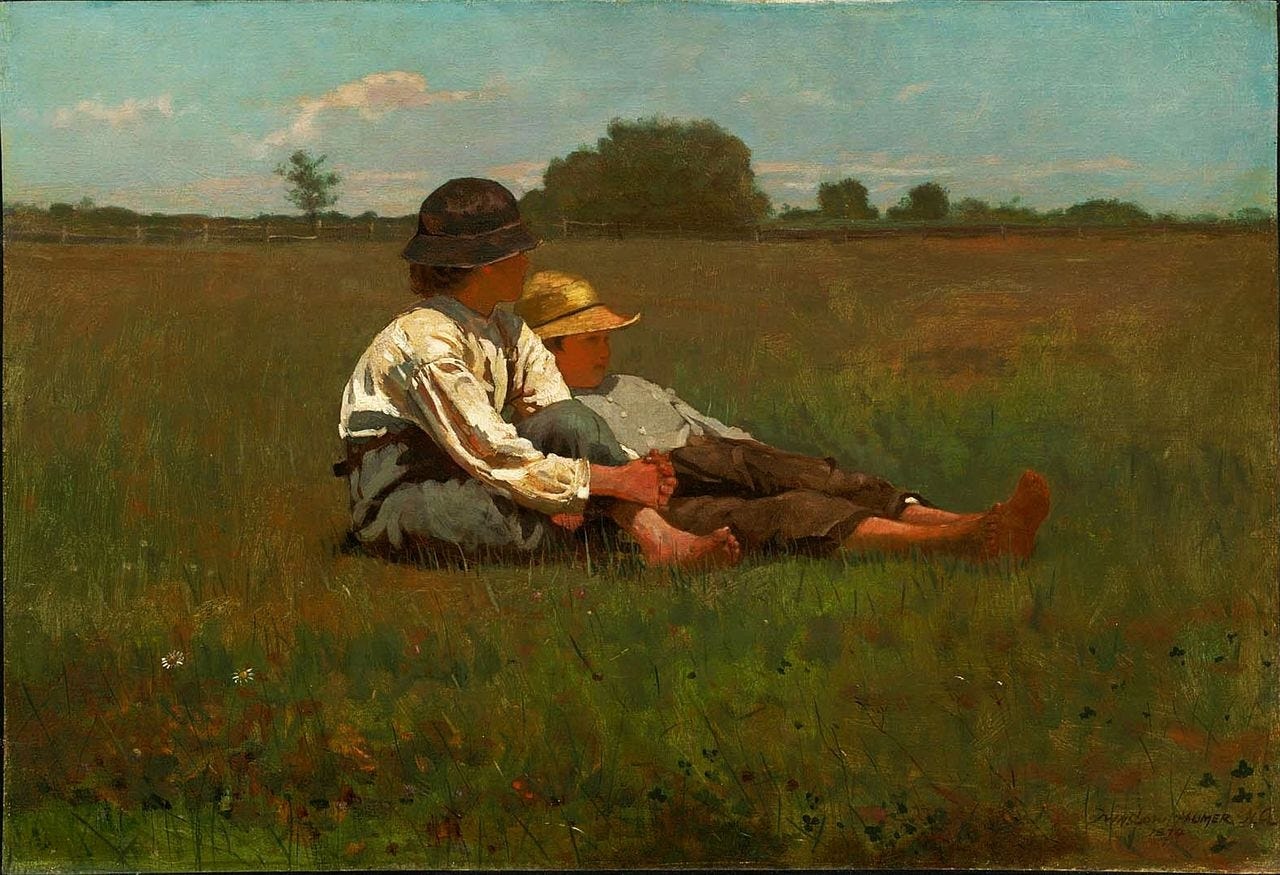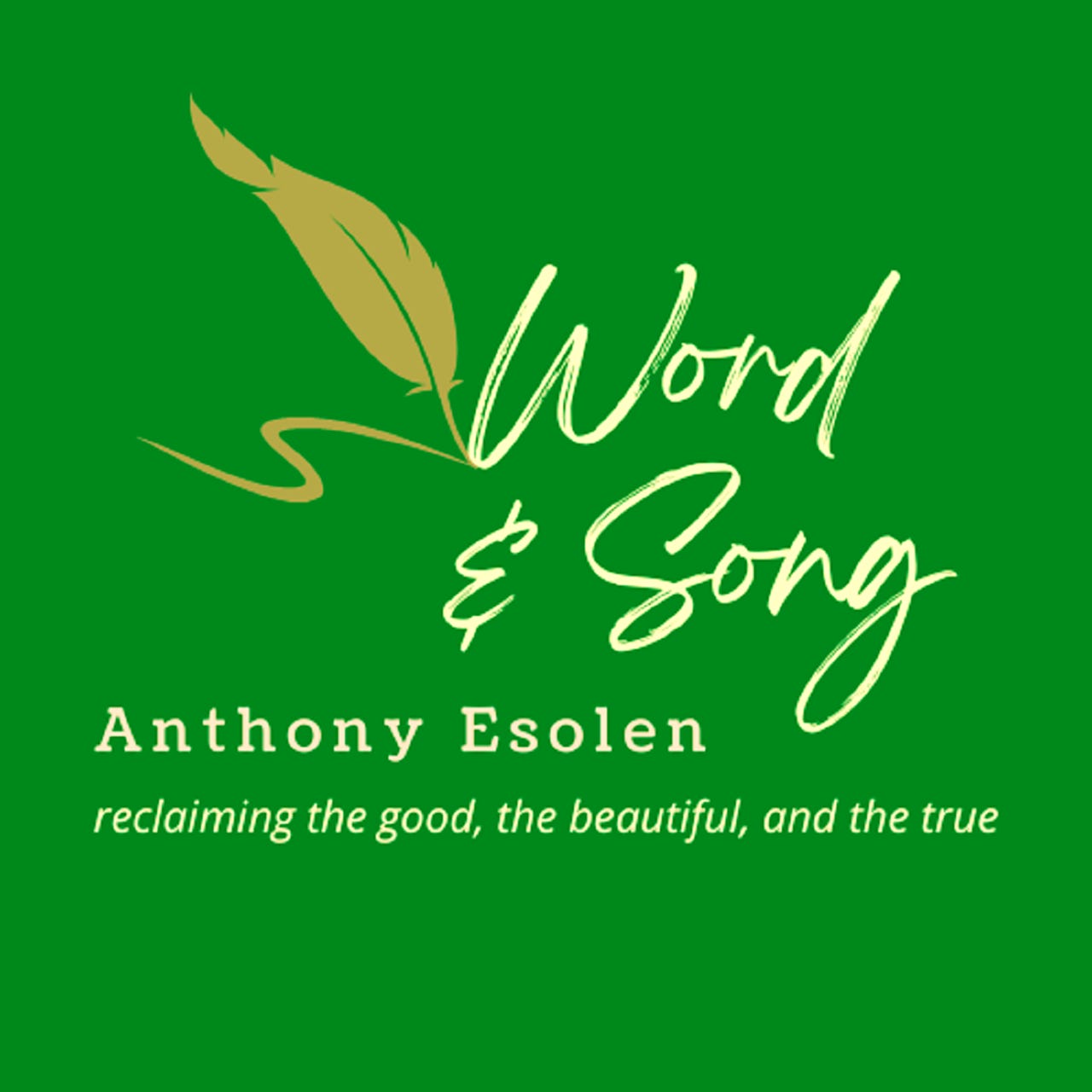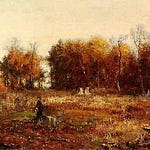Our back-to-school discount is still on at Word & Song, good for new paid and upgraded subscriptions as well as gifts (for the students, teachers, homeschoolers, and just about anyone who might like our magazine).
Debra and I have been watching a lot of crime films lately, and one thing we’ve noticed is how the bad men and bad women regularly betray a supposed friend, our Word of the Week, when it is to their advantage to do so. It’s as the fat man says in The Maltese Falcon, “Well, Wilmer, I'm sorry indeed to lose you. But I want you to know I couldn’t be fonder of you if you were my own son,” meaning that he’s going to have the fellow take the fall for a murder. What honor is there among thieves? But it’s what the ancients affirmed long ago. “I consider this as a first principle,” says Cicero’s Laelius, in his beautiful treatise On Friendship, “that friendship can exist only between good men.” If that’s true, then friendship must mean a good deal more than just amiability or a kind of surface affection. In Max Frisch’s novel Stiller, the narrator’s sometime beloved, Sibylle, spends some time at work in New York, and is somewhat surprised, even dismayed, to hear Americans call her their friend, when they don’t really know much about one another. Frisch’s idea, for what it’s worth, is that Europeans were a lot more chary of the word than Americans were, because, to be honest about it, you’re lucky if you have as many as two or three real friends.
“It is like taking the sun out of the world,” says Cicero, “to bereave human life of friendship, than which the immortal gods have given man nothing better, nothing more gladdening.” Cicero was at pains to refute the notion, put forward by Epicurean philosophers, that we seek friendship for some benefit we hope to gain by it, because according to their way of looking at things, all that we do, we do to gain pleasure and avoid pain. The best of the Epicureans were mild-mannered, often rather sparing in their diet and their habits, and they too said that friendship was the best thing in the world. But Cicero was on to something really important, which is that the language of genuine love and friendship is not the language of want and demand and need and gain, but of freedom, which itself means a lot more than a go-ahead to do whatever you please. We might get a sense of the bond between them, and what it really means to have a friend, if we think of something else that Cicero says, which is that a friend is someone in whose presence you can think out loud, without fear or embarrassment or touchiness. There is a relaxedness in that freedom — a leisureliness in being with a friend.
And the friend can be much more than a comfortable companion to talk with. The history of arts and letters is also a history of powerful and dynamic friendships: Wordsworth and Coleridge, producing together the volume Lyrical Ballads, which shook the literary world; Goethe and Schiller doing the like in Germany; Felix Mendelssohn, friend to so many composers of his time, apparently without an envious spot in all his soul; Hawthorne and Melville in America, wrestling with the Puritan past but in quite different ways; Lewis and Tolkien and their fellow Inklings; Flannery O’Connor and the Fitzgeralds; Richard Rodgers and Larry Hart, about whom Debra’s written quite a few times at Word and Song; John Ford and John Wayne — we really can go on indefinitely. What I’ve got in mind wasn’t teamwork exactly, and but a sort of spark, an ignition, a thought catching fire from a thought, and nobody ever thinking, “Hey, I’ve done my part, so now you do yours!” And here at Word and Song, we’re celebrating right now one of the deepest and most unusual friendships portrayed in literature. I’m speaking of the friendship of Huck and Jim, of course.
And last, we come to the word itself. It comes from Old English, and it was originally a verbal form, a present participle (our present participles used to end in -nd, not -ing). The verbal force suggested loving, or, you might say, being free with. Its opposite, almost identical in form, was feond, modern English fiend, someone active in being your foe. Now, as Grimm’s Law instructs us who are friendly to historical linguistics, the consonants in our parent language, Indo-European, made a great round-robin in prehistoric Germanic. For our purposes here, the ancient p shifted to f (see the cousins, Latin pater, but English father), the ancient f shifted to b (Latin frater, but English brother), and the ancient b shifted to p (Latin labium, but English lip). See how that works? So our word friend comes from an ancient root pri-, which gives us Russian priyatel’, meaning pal, chum, buddy; but higher up on the formal register, Sanskrit priya, beloved, now adopted into Hindi as a very popular name for baby girls.
Word & Song by Anthony Esolen is an online magazine devoted to reclaiming the good, the beautiful, and the true. We publish six essays each week, on words, classic hymns, poems, films, and popular songs, as well a weekly podcast for paid subscribers, alternately Poetry Aloud or Anthony Esolen Speaks. Paid subscribers also receive audio-enhanced posts and on-demand access to our full archive, and may add their comments to our posts and discussions. To support this project, please join us as a free or paid subscriber. We value all of our subscribers, and we thank you for reading Word and Song!
Listen to this episode with a 7-day free trial
Subscribe to Word & Song by Anthony Esolen to listen to this post and get 7 days of free access to the full post archives.













